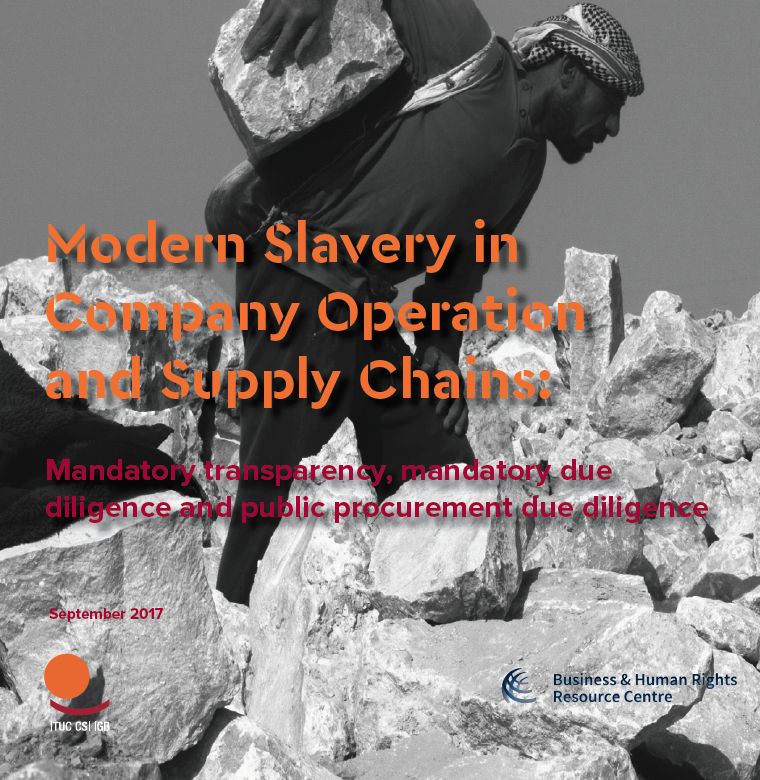The Human Trafficking Initiative
PublicationsThe Human Trafficking Initiative works to address the issue of child sex trafficking in Greater Atlanta. Sexual exploitation is the most damaging form of child abuse.
This paper sets out what leading governments are already doing to insist global business does more to eradicate modern slavery. It draws from this experience to set out how these uncoordinated actions could become a robust, and harmonised international standard for national legislations. Acting in concert, governments would have far greater impact on modern slavery and workers’ rights, and raise the floor of minimum corporate behaviour. Acting together, governments would also avoid a ‘spaghetti soup’ of incoherent national legislations, and instead create the international predictability that global business seeks.
This report reviews existing or emerging legislation that addresses modern slavery in companies’ operations and supply chains. It focuses on three related areas of legislation: mandatory transparency; mandatory due diligence; and public procurement.

The Human Trafficking Initiative works to address the issue of child sex trafficking in Greater Atlanta. Sexual exploitation is the most damaging form of child abuse.
This Guidance on addressing child labour in fisheries and aquaculture provides information and analyses current issues in order to improve the understanding of the nature and scope, causes and contributing factors, and consequences of child labour i...Read More
The world is currently experiencing multiple crises with serious humanitarian consequences. Armed conflicts, terrorism, climate change-induced disasters, the lingering COVID-19 pandemic and other health emergencies, as well as rising economic and fo...Read More
The data in this report represents signals and cases from January 1, 2019 through December 31, 2019 and is accurate as of July 30, 2020. Cases of trafficking may be ongoing or new information may revealed to the National Hotline over time. Consequen...Read More